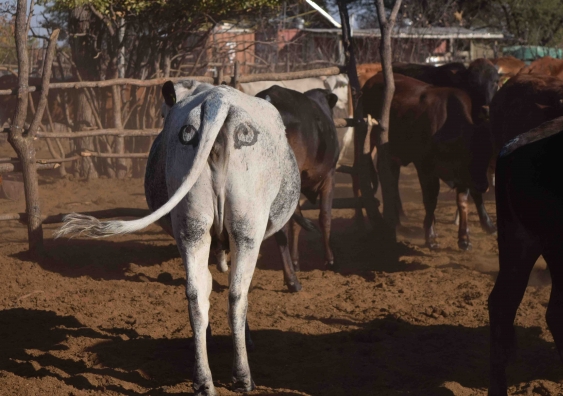“It’s a simple idea that looks really wacky,” Jordan admits. “But it does have a sound basis in animal behavior theory.”
The question is whether lions can be fooled by this same trick. Jordan suspects that they can, especially since lions tend to stalk their prey, and only pounce when an unsuspecting antelope or cow lets down its guard. “Lions are supreme ambush predators—they rely on stealth,” Jordan says in the video. “When seen, they lose this element of surprise and abandon their hunt.” In theory, farmers could protect their cattle by, you guessed it, painting eyes on the cows’ butts so that even when their backs are turned, they appear to be staring at the lions.
With their butts.
At least one small-scale study has already shown promising results.
Dr Jordan’s idea of painting eyes onto cattle rumps came about after two lionesses were killed near the village in Botswana where he was based. While watching a lion hunt an impala, he noticed something interesting: “Lions are ambush hunters, so they creep up on their prey, get close and jump on them unseen. But in this case, the impala noticed the lion. And when the lion realized it had been spotted, it gave up on the hunt,” he says.
In nature, being ‘seen’ can deter predation. For example, patterns resembling eyes on butterfly wings are known to deter birds. In India, woodcutters in the forest have long worn masks on the back of their heads to ward-off man-eating tigers.
Jordan’s idea was to “hijack this mechanism” of psychological trickery. Last year, he collaborated with the BPCT and a local farmer to trial the innovative strategy, which he’s dubbed “iCow”.


